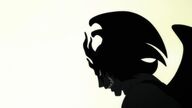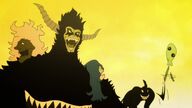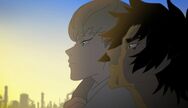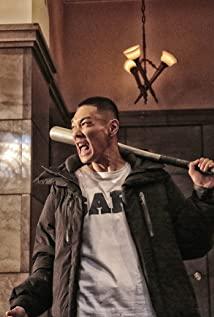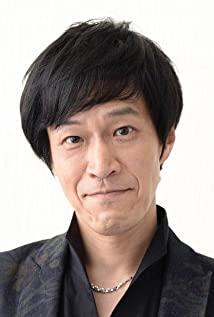When I first met Masaaki Yuasa, of course, it was his figure that looked like a monkey. After seeing his works, my understanding of him as a director was that "just say what you want to express." Yuasa Masaki really didn't care about the audience at all, he didn't leave any chance for me to feel the distortion of various pictures, and tried his best to put what he likes and dislikes into a story.
The story of the devil, for someone like me who is used to light novel routines, is too unimaginable, probably because of the proliferation of different world travel texts recently. Let me tell you one by one, and bring out what I have thought about. The part where Miki was cut off by the rap group after school: the heroine is pure and serious, the fish man who claims to be underwater, although the rap is very interesting, but from my experience, I judged from my experience: the heroine who dared to cut the heroine was dressed in fancy dress The little gangsters in the movie will not be the main characters, or even destined to be the scum of society (in anime). It's quite normal to get here, it's the foundational stage of the joyful pretending to be a pig and eating a tiger that I'm used to. Baimao took the male lead away and shot the wooden bridge. The next day the male lead went to this group of beautiful trees to get back the schoolbag, but the wooden bridge was repaired. Helping the hostess to look at the bag, and building the wooden bridge at the same location the next day, the contrast is a bit big. You are gangsters, and you serve the society without knowing how to live or die. You are not an organization of a state agency. After watching a few episodes, I suddenly came back to my senses. What they rap is about is to expound the longing for a better society and to satirize the darkness of the real society (BGM should sound here: tell me why)
It didn't take long for me to completely think that their rap was the OP of the Devilman, filling the void of my admiration for the OP's picture without lyrics. In the fourth episode, one of the little bastards confessed to Meiko rap, which really moved me, not because of how sincere his love was, but because Meiko was taken away by someone else's name and raped. When Miko was at her lowest point, she brought light, and as a result, both of them lost their human identities in the middle of the night. One died at the hands of the devil, and Miko became a devil. Rap and his party were looking for a cocoon, and they recognized the wrong person in the store. They were directly bitten by others and said they were robbery. They were considered recent criminals because of their appearance and were almost killed by the police. Miki came over and let both parties calm down. The conflict is resolved. At this point, I should have seen clearly that Masaaki Yuasa is giving me a dark background and a tragic direction, and I have to apologize here. Evaluating people based on appearance is my habit formed by loneliness. They came up and made irresponsible remarks to the individual. Later, as expected, they rescued Miki during the riot, and they accompany Miki until the end. There are also many such plots, human skin demons, and demon hearts appear many times in the film.
Every emotional outburst in the film is very shocking, and I have to mention that the part of Dead Liyu and Huai Meng's fusion, I can't say what a beautiful love this is, but I have seen similar people's infatuation with love, once again Let me confuse people and demons, and I don't want to sully the shocking sacrifice of this scene with my poor words, directly above.
The plot is really amazing, and the story connection is even more magical. With a capacity of 10 episodes, Yuasa Masaki showed enough essence, and multiple story lines develop at the same time. When the main line is a little boring, the branch line will come. A blast. In addition, there are many plots that I have not mentioned, among which there are many details and characters that are deeply explored. You must dig out the most touching places in the play.
Bai Mao's absolute rationality as a human being, I don't know how to evaluate it. I'm not the first to see such a character. The last time I saw such a character was in "Asian", and I also longed for such a character, but absolutely There is no happy ending for the role of rationality, and a satisfactory answer has never been obtained. Only the speculation that "absolute rationality will make individuals lose their color, if everyone is rational, then the world will lose diversity." I temporarily convinced myself. Fortunately, the contradiction in the play is not here, but Baimao announces that there are demons in the world. Human beings are the first to show abnormalities, and everything may be the result of intentional actions by demons. Repeatedly, like Tai Chi, you really can't tell who is the real devil.
In the end, Bai Mao finally felt the loneliness of people, but he was bombarded by gods again. I think he had to seal his memory again and enter the next reincarnation. Loneliness after losing everything? Or not.
View more about Devilman: Crybaby reviews




